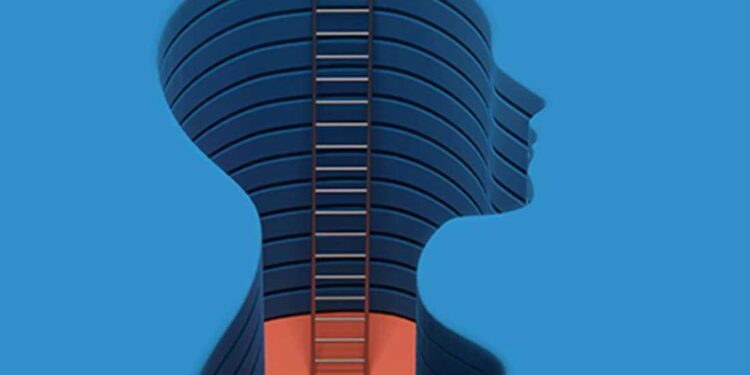This approach to personal and family history was developed during the 1970s by Anne Ancelin Schützenberger (1919-2018), founder of the Transgenerational school
An artistic image of a human head and ladder. (Photo supplied)
What is psychogenealogy?
The field of psychological research recognizes that human beings receive not only the biological and genetic heritage of their ancestors but also a psychological heritage; traumas, successes, failures, accidents, even illnesses sometimes have their origin in the remote history of one’s ancestors.
Thus, seemingly like a chain of transmission, one often comes across puzzling facts that may find their explanation by going back to the events of the past and accessing the family tree.
Psychogenealogy, as a method of investigation, is an aid not only to avoid reading such happenings from a purely individual perspective but to insert them into the larger fabric of family history, recognizing events of the past that continue to affect the present in a negative way, hindering the realization of one’s plans and desires.
This approach to personal and family history was developed during the 1970s by Anne Ancelin Schützenberger (1919-2018), founder of the Transgenerational school.
Drawing on the research of Françoise Dolto (1908-88), Jacob Levi Moreno (1889-1974), Gregory Bateson (1904-80) and Ivan Boszormenyi-Nagy (1920-2007), Anne elaborates a therapeutic program that can help understand events and wounds of the past.
As she proceeds in this work, she notes, in line with the approach of depth psychology, the importance of nonverbal communication and family history in shedding light on certain dysfunctional phenomena that are at first sight unexplained but seem mysteriously to manifest a kind of script from the past that frequently repeats over successive generations.
This article is brought to you by UCA News in association with “La Civiltà Cattolica.”



Dear reader,
November begins with the Feast of All Saints. That month in 2023 marked the beginning of a new UCA News series, Saints of the New Millennium, profiling some of Asia’s saints, “ordinary” people who try to live faithfully amid the demands of life in our time.
Perhaps the closest they will ever come to fame will be in your reading about them in UCA News. But they
are saints for today. Let their example challenge and encourage you to live your own sainthood.
Your contribution will help us present more such features and make a difference in society by being independent and objective.
A small donation of US$5 a month would make a big difference in our quest to achieve our goals.

William J. Grimm
Publisher
UCA News
Latest News
Credit: Source link





